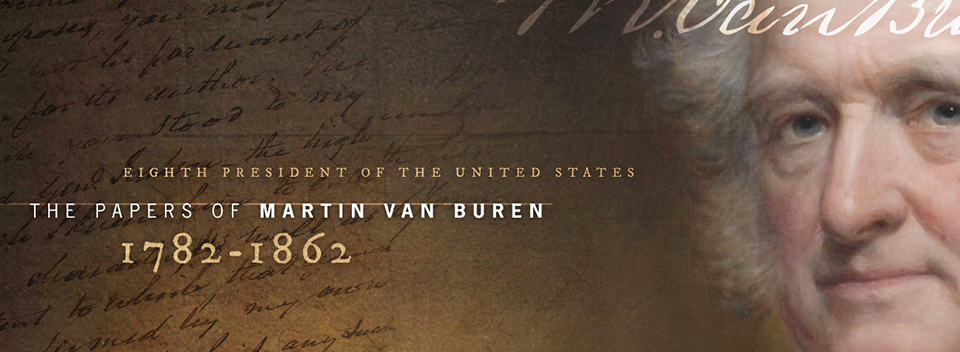2/11/2016
A major new project to transcribe and annotate more than 13,000 documents of the eighth president of the United States of America, Martin Van Buren (1782-1862), will officially launch at Cumberland University on Presidents Day, Feb. 15, 2016, from 2 p.m. – 4:30 p.m. in the Vise Library with a press conference, followed by interview time, then a symposium in Labry Hall. The project, called “The Papers of Martin Van Buren,” will make these presidential papers widely available to the public for the first time. Cumberland University is one of only nine universities to house copies of his microfilmed papers, but we are the first and only to transcribe, annotate, edit, digitize them.
Dr. Mark Cheathem, professor of history at Cumberland University, is co-editor of the project, along with New York independent scholar, James Bradley. They will partner with the University of Virginia’s Center for Digital Editing to make President Van Buren’s letters, speeches, notes, and miscellaneous material available in three formats: a free website, VanBurenPapers.org, containing all 13,000 transcribed documents; a subscription-based digital edition, published through the University of Virginia’s Rotunda platform, of all 13,000 documents transcribed and annotated for the general public and scholars; and a one-volume print edition of 250-300 of his most important political letters and speeches, transcribed and annotated for the general public and scholars. All of Van Buren’s major contemporaries, including Andrew Jackson, John Quincy Adams, Henry Clay, John C. Calhoun, Daniel Webster, and James K. Polk, have had their writings published in some form. Van Buren is the exception.
The Papers of Martin Van Buren will chronicle the influential life of the U.S. president who served from 1837-1841, and will cast light on the birth of the two-party political system. For nearly half a century, Martin Van Buren was one of the nation’s most famous and influential politicians, wielding power at every level of government as a lawyer, legislator, diplomat, and chief executive. He founded the Democratic Party and engineered Andrew Jackson’s groundbreaking election to the presidency. Van Buren was the principal architect of the two-party system, building on the traditions and practices of early generations of New York politicians and elevating them to new levels of professionalism. He saw the potential in the press, patronage, fundraising, image-making, political machines, national political committees, nominating conventions, stump speaking, ethnic voting blocs, and mass meetings. He harnessed the public outcry for greater participation in government to build a more inclusive party system. In short, Van Buren turned democracy from an idea into a profession.
Cheathem will also serve as project director and will be responsible for the day-to-day operations. Undergraduate students from Cumberland University will assist with the project. The Papers of Martin Van Buren has an advisory board consisting of representatives from Cumberland University and several experts in the fields of Jacksonian and presidential history, as well as scholarly editing:
Dr. John L. Brooke, Humanities Distinguished Professor of History, The Ohio State University
Dr. Eric Cummings, Dean, School of Humanities, Education, and the Arts, Cumberland University
Dr. Daniel Feller, Professor of History and Chief Editor, The Papers of Andrew Jackson, University of Tennessee
Dr. George Franz, Professor emeritus, Pennsylvania State University-Brandywine, and former editor, The Papers of Martin Van Buren microfilm edition
Dr. Reeve Huston, Associate Professor of History, Duke University
Dr. John F. Marszalek, Chief Editor, The Papers of Ulysses S. Grant, Mississippi State University
Dr. C. William McKee, Vice President for Academic Affairs, Cumberland University
Ruth Piwonka, Independent Historian, Columbia County, New York
Dr. Harry L. Watson, Atlanta Alumni Distinguished Professor of Southern Culture, University of North Carolina at Chapel Hill
Project co-editors Cheathem and Bradley, Drs. Marszalek and Feller, along with Jennifer Stertzer, Senior Editor, The Papers of George Washington, and Lecturer at the University of Virginia, will be available for interviews, to answer questions, and to discuss the project following the press conference until 3:15 and at the symposium in Labry Hall from 3:30-4:30 p.m.


